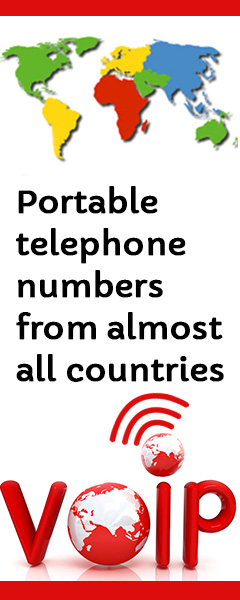
In the international context, the Swiss banking system is a global leader and Switzerland is one of the most competitive financial centers in the world. Unfortunately, Swiss banks don’t open accounts for European residents, but they are open to Latin Americans.
Europeans can open a Swiss bank account if they agree to the bank exchanging information with the country where they reside for tax purposes.
A Swiss bank account is the best option for a resident outside of the European community. The majority of the banks require the presence of the account holder to open it, but we have online options.
There are many banks and financial companies in Switzerland. The financial sector is one of the pillars of the Swiss economy and its production represents around 10% of the gross domestic product.
The Swiss finances, although they maintain a sympathetic and classic image, have adapted to a global and modern standard. So, they’ve taken measures against money-laundering, the fight against terrorism and the stabilization of financial markets.
At the same time, Switzerland has encourage innovation in financial services; for example, facilitating the entry of financial technology businesses – like cryptocurrencies and the new fintech products – into the market.
Switzerland is a traditionally neutral country and has never declared war on any other country.
In addition, it’s not a member of the EU and maintains a completely independent position. So, the country’s risk can be considered low, since it’s highly unlikely that it will be affected by the situation in other countries.
Plus, Switzerland has kept its own currency, the Swiss franc, which remains stable and strong in the international markets.
The Swiss banks are the main actors in the country’s finances and are recognized universally as stable, trustworthy banks.
The myth of the Swiss banks
In the past, these banks earned a certain reputation f=by offering their customers anonymous checking accounts. In the place of the account holder’s name a number appeared and only one or two bank officials knew the customer’s real identity. However, this was in the past.
Also, thanks to the anonymous account system, the Swiss banks created the myth of the absolute protection of the customer’s privacy, which contributed to the enormous increase of the capacity to attract capital from around the world.
It’s been several years since it abandoned this practice due to the adoption of international norms; however, they still continue to value the confidentiality of the Swiss banks as a unique added-on value.
In fact, the demand for opening accounts is very high, since the banks can select their customers and choose only the best.
These days, opening a Swiss bank account isn’t easy. You have to pass through a system of filters and tackle a fairly ample list of requirements.
The peculiarity of the selection process of the Swiss banks is that they literally choose their customers by applying requirements that are very demanding at times.
How to make the request for opening a Swiss bank account
To open an account, you may face the following difficulties:
- A high fee for activating the account is required.
- Minimum deposits and requirements account for high deposits.
- Complex requirements for documents on the origin of your money.
- The bank doesn’t work with non-resident foreigners.
- And other problems.
There are banks that don’t open accounts for non-residents. Or that apply very strict requirements for approval of the request. For example, a bank can demand an activation payment of more than 100,000 euros for opening the account, as well as demands for maintaining a minimum deposit of more than 500,000 Euros. Even some products are subject to even stricter requirements.
Due to the existence of these norms, the banks classify their customers according to their predetermined parameters and only accept those who comply with their criteria. This creates a lot of problems for foreigners who, at times, who don’t follow through with opening an account at any Swiss bank.
requirements that have allowed the Swiss banking system to keep their stability for so many centuries.
So, it’s clear that ordinary customers don’t have many possibilities. At the very least, they will have to be known or referred by someone to be able to apply for one.
The possibilities of being admitted increase if you can count on professional help. For example, our firm can help you with the presentation of the profile of the person or business, presenting the necessary documents and to advise you on passing the selection process.
Regarding the initial capital for opening the account, they rarely accept candidates with less than a million dollars or a million Euros. However, we have banks that accept even initial deposits of only 10 thousand Euros,
Opening a bank account remotely
There are some banks that offer to open accounts remotely. In this case, it’s not necessary to travel to Switzerland, everything can be done from anywhere, wherever you are.
The banks make the identification of the customer through Skype or other means of communication. If everything goes well, they will send the documents by correspondence and, finally, you can open a bank account in Switzerland without having to travel to that country.
The process begins with the phase of compiling your documents. The following is the minimum documentation demanded by the banks:
- The bank’s application form for opening the account.
- Letter of Recommendation (from my firm or from a bank).
- Document of establishment of the business for which you are opening the account.
- Passports of all the directors and share-holders.
- Proof of residence, normally bills for public services are sufficient, but for Europeans the enrollment in the Registry for Foreign Residents is required.
- Certificate of Good Standing for the business (dated no more than three months prior) for businesses older than six months.
- Proof of origin of the funds.
However, the banks reserve the right to request other documents.
The following step, after getting all the documents together, is to send everything to the bank. Each bank has its own conditions and norms, however, as a general rule, they take at least several days to carry out the preliminary examination of the application, and even more in some cases. However, when our firm of lawyers is involved, we make sure that the process for opening the account is highly streamlined.
Opening the bank account
The following step is the defining factor: once the bank has studied your application and has approved it, the account is open, but it won’t be immediately opening operational. In many banks, an activation deposit is required. The amount depends on the bank and its product; however, the average is around 10,000 Swiss francs (for a private account) or 50,000 Swiss francs (for a corporate account).
Paying an activation deposit is necessary so that, after the account-opening procedures are completed, you can finally use the account. The initial deposit is a minimum amount that the bank asks for be kept in the customer’s account.
Once the deposit has been made, you will have full access to all services. And only starting from this moment will the account be totally operational. You will have to make the deposit directly into your account.
It’s important to remember that, depending on the bank’s conditions, it can demand that you keep a set amount in your account, or rather, a minimum balance. The amount depends on the bank and the type of account, and is rarely lower than 1,000 francs. When opening an account in Euros, dollars or another currency, the bank has the right to set a minimum balance in each one of them.
Investment accounts
Foreigners and non-residents see Switzerland not only as a “safe haven” where they can securely safeguard any amount of money, but also as a jurisdiction where they can increase their patrimony.
In addition to the classic accounts, there are also investment products for foreigners. This product should be considered as a higher level than deposits, because the banks, generally, demand greater requirements than the majority of investment tools of this type:
- The interest is higher than the deposit accounts.
- The initial investment is usually at least 250,000 Euros.
The professional Swiss managers can increase the investment between 3 and 5% per year, maintaining a low level of risk. There are also riskier instruments with a higher profitability.
However, unfortunately, the cost of the Swiss banking services is very high.
Due to the high level of the services and the great demand, the Swiss rates are the highest in Europe. This is due in part to the jurisdiction’s great popularity.
With our help, you can quickly open a personal or corporate account. Our assistance goes from the moment of choosing the bank and continues the process through all of its stages, up through the choice of the sophisticated patrimonial services.
If you’re interested in opening a bank account in Switzerland, contact us.
